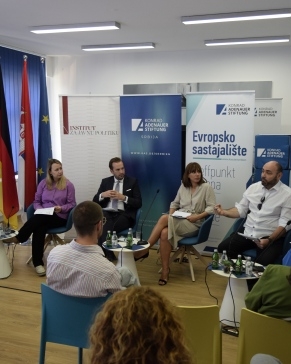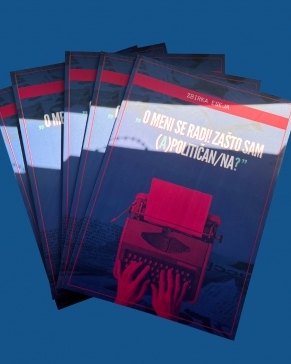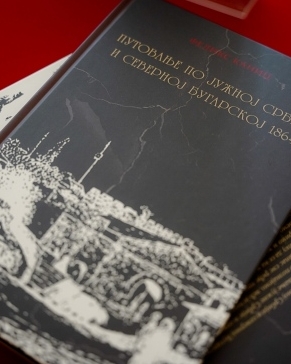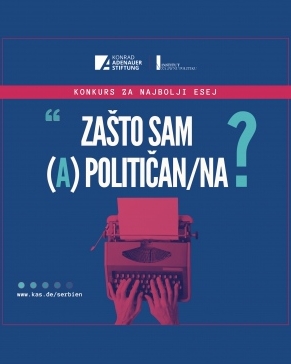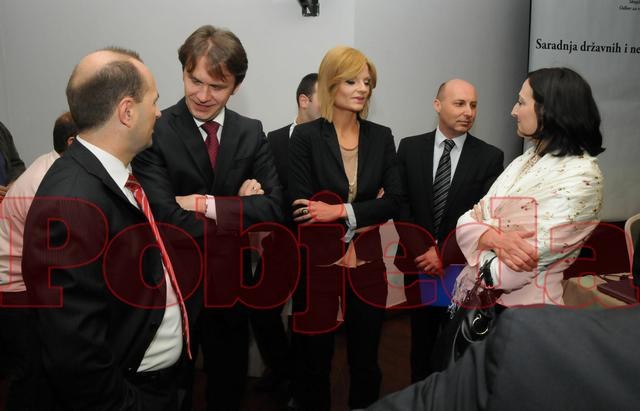
A conference dedicated to cooperation of state and non-state actors in the process of implementation of the UN Security Council Resolution 1325 - Women, Peace and Security, was organized in hotel “Podgorica” on the 4th of June 2013 by the Public Policy Institute from Podgorica, in cooperation with OSCE Mission to Montenegro and the UNDP Office in Montenegro.
Montenegrin Minister of Interior Rasko Konjevic opened the conference and pointed out that the integration of women in the security system is becoming a global trend, and that everyone needs to work within their areas of expertise in order to increase the participation of women in all sectors. According to the information presented by minister Konjevic, about 19 percent of the employees at the Police Department are women, one third of employees at the Ministry of Defense are women, while about 34 percent of employees at the National Security Unit are women. Minister for Human and Minority Rights Suad Numanovic noted that Montenegro should take all necessary steps in order to improve the political and economic rights of women and achieve gender equality. “Despite the visible progress in this area, we should continue to work on the efficient implementation of the legislation and the strengthening of intersectoral cooperation in order for equality to really came to life in practice. Components of gender equality should be included in all the sectors of the security system,” Numanović said.
Head of the OSCE Mission Ljubomor Kopaj pointed out that Resolution UN 1325 is one of the central principles of the Action Plan for Gender Equality, adopted by all 57 member states. He said that the OSCE has long recognized that equal rights for women and men, as well as the overall protection of human rights constitute one of the essential preconditions for sustainable peace and security, as well as that OSCE Mission supported the conference in the hope that it will lead to further important steps and actions, such as adopting the National Action Plan for the implementation of this resolution. During the introductory part of the conference the audience was also addressed by Miodrag Dragisic, Head of Social Inclusion Sector within the UNDP, who said that this organization will pay special attention to the advocacy for gender equality, since the position of women in all aspects of society is one of the primary indicators of the level of development of the state.
The first panel of the conference was opened by Andrea Vesa, who was engaged in the conference via video link streaming from Brussels. Vesa spoke about the importance of the Office for Democratic Institutions and Human Rights in the process of implementation of Resolution 1325. This Office, established within the OSCE, is active in the areas of monitoring electoral processes, democratic development, human rights, tolerance, non-discrimination and the rule of the law.
Bojana Balon, advisor to the SEESAC program formed within UNDP, spoke about the examples of good practice in the implementation of Resolution 1325 at the regional level. SEESAC (South Eastern and Eastern Europe Clearinghouse for the Control of the Small Arms and Light Weapons) works to strengthen the capacity of national and regional actors in order to control and reduce the proliferation and misuse of small arms and light weapons, and thus contribute to the stability, security and development of South East Europe. The projects presented by Bojan Balon were related to women in the military and police sectors.
Nada Drobnjak,President of the Committee for Gender Equality at the Parliament of Montenegro, reminded the audience about the course of the regional cooperation of governments in managing the process of implementation of Resolution 1325. She has also presented the work of the Parliamentary Committee within the Belgrade Centre for Political Excellence. Selena Tasic, program manager of the Public Policy Institute, presented the experience of Serbia in adoption, implementation and monitoring of the National Action Plan for the implementation of Resolution 1325 and noted the importance of lessons that Montenegro could learn from the case of Serbia. She stressed that the adoption of NAP should not be a fast process, because it is necessary to make a comprehensive consultations and involve all social actors for the implementation to be successful.
The second panel was opened by Ljulja Đonaj from the Police Department, who was also a representative of the Women Police Officers Network in South East Europe. She spoke about the participation of Montenegrin branch of the Network in its activities. Irena Boskovic from the Ministry of Human and Minority Rights of Montenegro has pointed out the importance of cooperation between the state and civil society actors, referring to the coordination and management of the resolution implementation process.
The role of civil society in the implementation of Resolution 1325 was discussed by a representative of the NGO "Women, Peace and Security," Nada Vukoslavcevic. The panel was closed by Duska Pejovic, Atlas TV journalist, who emphasized the importance of the media in informing the public about Resolution 1325. She has devoted a part of her presentation to the overall image of women that is being presented to the public by the media, concluding that the media coverage, for the most part, does not take the aspect of gender into consideration.
Representatives of the civil sector were actively involved in the discussion.
All participants in the conference expressed their willingness to participate in the continuation of this process, cooperate in the process of implementation of the Resolution 1325 and thus contribute to the equality of women in the security sector.

